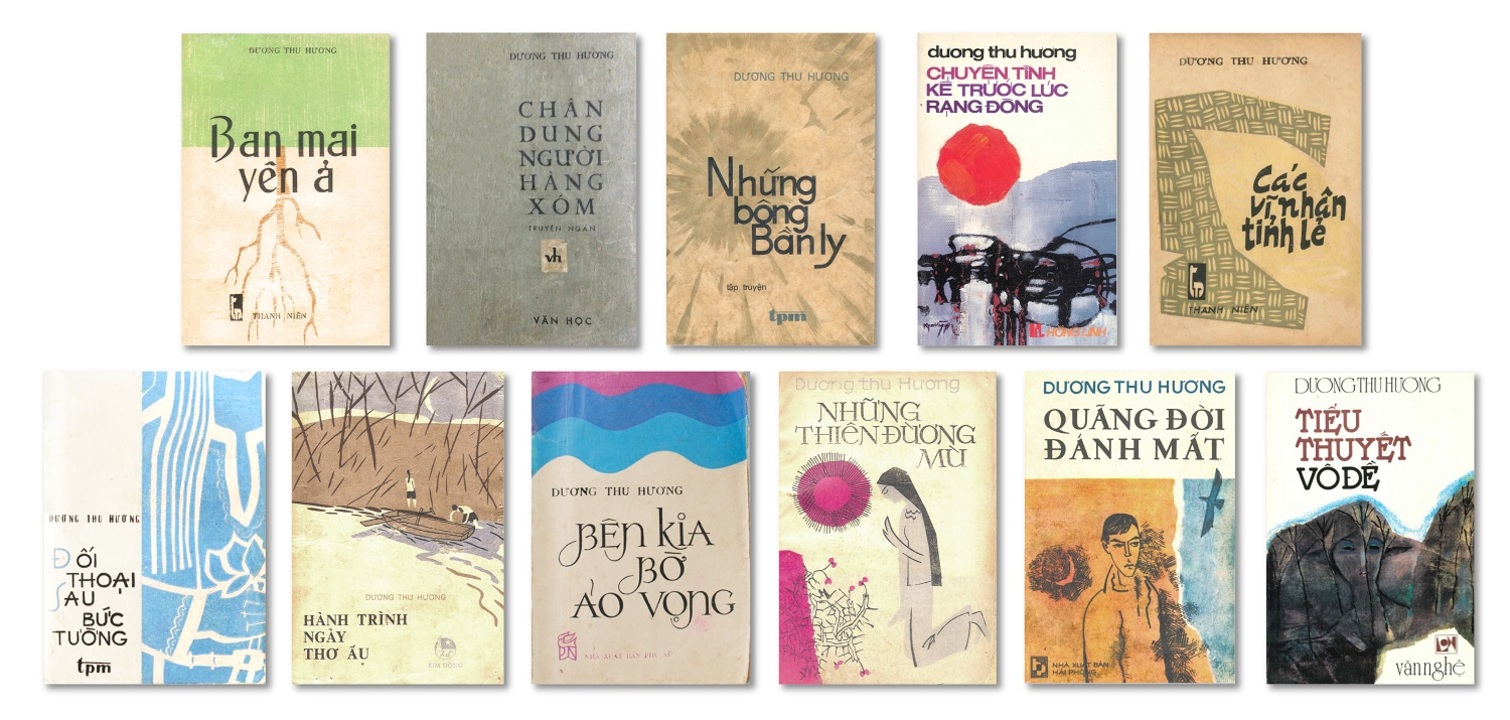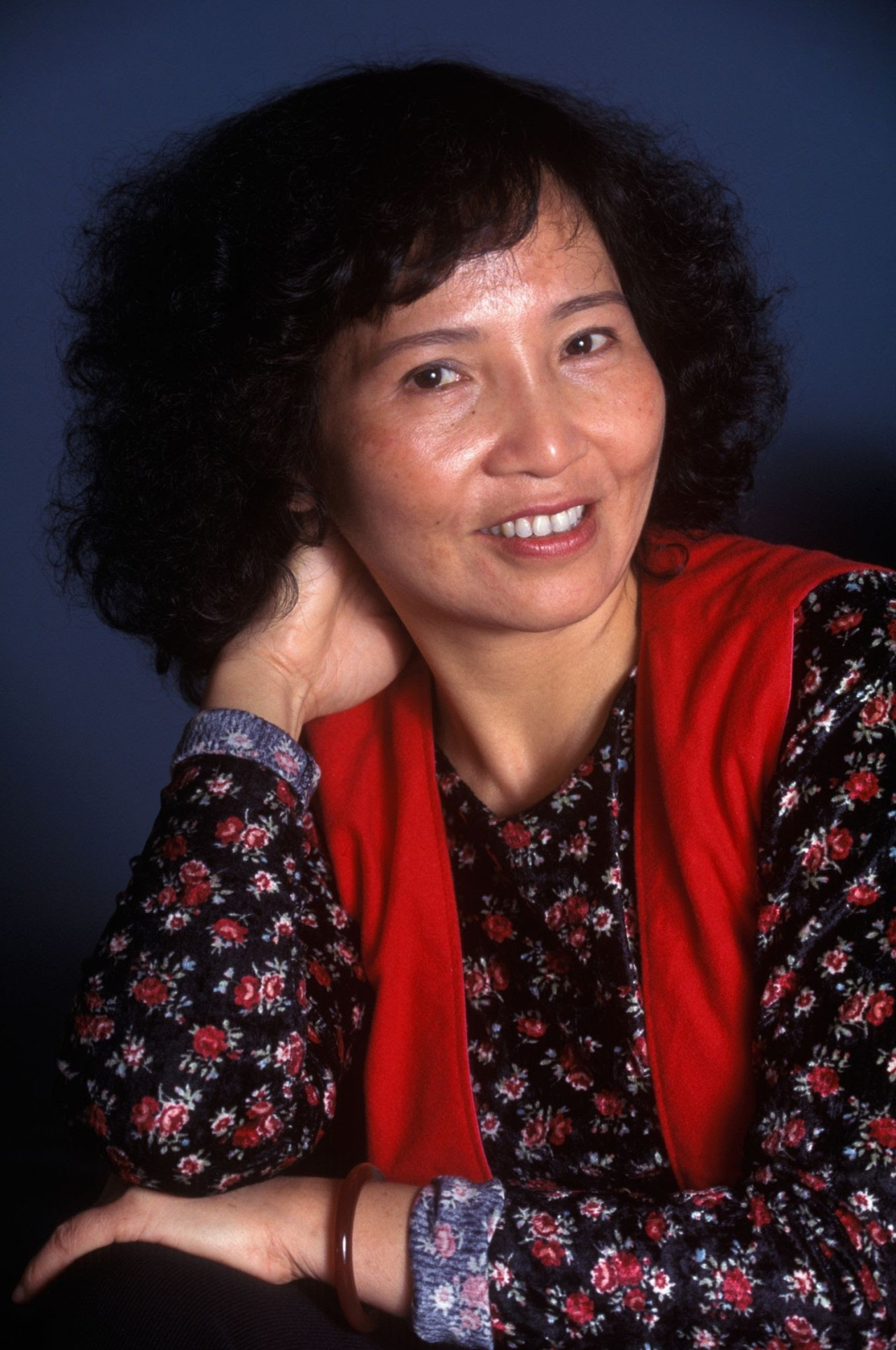Dương Thu Hương, an exemplar of socialist realist writers
From the overall impression of her oeuvre to the caricatures drawn by her contemporaries, and especially her manner in the available...

From the overall impression of her oeuvre to the caricatures drawn by her contemporaries, and especially her manner in the available interview videos, Dương Thu Hương has always appeared to us as a straightforward, daring and adamant person.
It is not difficult to point out the fallacies in the content of what she said. However, if we attend more closely to how she said it, we can see a level of assertiveness that hardly anybody of her generation is able to reach, and that’s what we appreciate about Dương Thu Hương. She is the antithesis of such a fuzzy and suppressing manner of those government functionaries of her time.
Dương Thu Hương has always proved to have a strong belief in what she says the moment she says it. She obviously bad-mouthed sometimes, but she has never denied what she has said or done. This is evident in the fact that she has no pseudonyms other than her true name, signed in all of her publications. It starkly contrasts with the tradition of anonymous denunciation in the Nhân Văn-Giai Phẩm affair. Her attitude somehow reminds us of an etiquette frequently found in wuxia novels, that is 行不更名坐不改姓 (meaning traveling and sitting with a name unchanged), which reflects the integrity and straightforwardness of a warrior. By audaciously using her real name in any circumstances, Dương Thu Hương implicitly made a declaration that she is willing to pay any price for telling the truth, or at least what she believed to be the truth, and for doing the right things.
In an interview, Dương Thu Hương also said that she never bows down to anybody, even a country leader or a military general, and that she is never wrenched by either compliment or criticism. How she survived her days in prison and under the intense pressure of the communist government has shown that her self-perception is not bragging at all. She was so independent and undaunting that she has all the right to criticize the weakness and cowardice of her people for not having the guts to express their dissidence against the rulers.
This self-assuredness could probably set the bar for her literary works, and help her initiate a novel at a certain level of awareness. Dương Thu Hương is more like a person of action than of intellectual inquiry. She seems to have an unshakeable faith in her empirical knowledge, and she never tries to distance herself from her writing, which makes her totally different from Nguyễn Huy Thiệp who scarcely reveals himself in his novels, as commented by Phan Huy Đường.

If we are to sketch a portrait of Dương Thu Hương, that must be a woman of bravery and endurance, and ironically, that is an archetype of the writers that North Vietnam had tried to produce with their theses on culture: a warrior-writer.
Although Dương Thu Hương’s philosophy of writing has never been explicitly stated, we can easily see that literature is not the ultimate goal of her writing career. She has never claimed to be a professional writer. Rather, she considers literature as a means of revolution. She writes to expose the problems of the current regime, and that is exactly what was expected by the communist leaders. «Literature and arts is also a battlefield, and the artists are the warriors in that battlefield», said Hồ Chí Minh.
Dương Thu Hương also adopts the realistic literary style of Vũ Trọng Phụng, Nguyễn Công Hoan and Nam Cao, the style that was later theorized as socialist realism. She depicts the subjects of social concern, such as the land reform (as in Paradise of the blind), and she attempts to represent the subject matter truthfully, without artificiality and supernatural elements. This could possibly be the result of the education she received from Nguyễn Du creative writing school, an institution established in 1979 to train the writers serving the party as the functionaries of the propaganda department. It is indisputable that Dương Thu Hương is an unexpected product of the propaganda education system of North Vietnam. While almost all of her contemporaries complied with the cultural guidelines of the party, she took a totally different path, the path of a dissident.

Sách
/sach
Bài viết nổi bật khác
- Hot nhất
- Mới nhất
Hãy là người đầu tiên bình luận bài viết này





